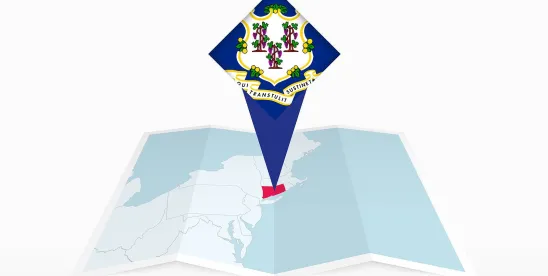On June 25, 2025, Connecticut Governor Ned Lamont signed into law Public Act No. 25-96, “An Act Concerning the Department of Public Health’s Recommendations Regarding Various Revisions to the Public Health Statutes” (the Act). The Act includes several new requirements for hospitals, as well as new authority for the Department of Public Health (DPH) to oversee all health care entities. Finally, the Act adds a new licensure status for retired physicians.
New Requirements for Hospitals
The Act requires a hospital to notify DPH within two hours of the hospital declaring an “emergency department diversion,” which the Act defines as a hospital rerouting an incoming ambulance to another hospital because the diverting hospital lacks medical capability. The Act does not define the term “medical capability.” DPH will be providing the form and manner of such notice. Additionally, the Act adds the requirement that hospitals’ chief medical officers and chief nursing officers be licensed in their respective professions in Connecticut. Each of these new requirements become effective October 1, 2025.
DPH’s Authority to Oversee and Enforce
The Act expands DPH’s ability to waive inspections for licensure renewals for all DPH-licensed institutions, other than nursing homes and nursing home facilities, that are certified Medicare or Medicaid providers, starting October 1, 2025. Previously, DPH could waive inspections of institutions such as hospitals and home health agencies if the institution was a certified Medicare or Medicaid provider or had been certified within the past year. Once the Act becomes effective, an institution must be certified at the time of its renewal application for DPH to waive the inspection requirement. Because Medicare and Medicaid also conduct inspections, this change may alleviate some duplicative obligations for DPH-licensed institutions that participate in Medicare and Medicaid.
The Act also broadens the set of statutes and regulations under which DPH may take disciplinary action against DPH-licensed institutions. Effective from passage, DPH can take action against institutions that substantially fail to comply with a wider range of requirements, including those specific to institution licensing statutes and regulations but also the public health statutes generally (Title 19a of the Connecticut General Statutes). This includes, for example, failure to report on opioid overdoses, failure to promptly transfer electronic health records (i.e., information blocking), and other requirements of Title 19a that were not previously within DPH’s enforcement authority. The Act does not change the options at DPH’s disposal for disciplinary action. Types of disciplinary action still include license suspension or revocation, probation, corrective action plans, or civil penalties of up to $25,000.
Retired Physician License Status
Finally, the Act allows retired physicians, beginning January 1, 2026, to renew or reinstate their licenses for a reduced fee, allowing them to return to practice as a volunteer physician providing unpaid services. The Act directs DPH to set parameters around what defines “retirement” for the purposes of this reduced fee, as well as the specific scope of practice for this new licensure type.
This article was co-authored by Ivy Miller




 />i
/>i

